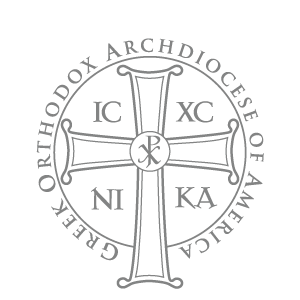Explanation of the Daily Services of the Orthodox Church
Introduction
In the Orthodox Christian Faith there is a cycle of services that can be done throughout the day. The services are: Vespers, Apodeipno (Compline) Mesonyxtikon (Middle of the night), 1st Hour, 3rd Hour, 6th Hour, 9th Hour, Orthros (Matins), and Divine Liturgy. In addition, there are many other services that do not have a specific designated time when they are to be done, but none of the services are dependent upon another. They are all independent and operate separate in and of themselves. The daily cycle of services can flow into one another as we experience on a Sunday morning, where Orthros leads right into Divine Liturgy. In this short explanation, we will briefly explain the services of Vespers, Orthros and Divine Liturgy.
Vespers (Esperinos)
From a spiritual sense, for Orthodox Christians, the day Liturgical day begins at sunset. This follows the traditions passed on from the Jewish mosaic law, and as we read in the book of Genesis "God called the light Day; the darkness He called Night; and there was evening and morning, one day" Gen 1:5). We come together for prayer in the evening and as a community pray the “evening prayers”- Vespers. Vespers is a Latinized word from the original Greek word for the service esperinos, which means evening. The prayers throughout the service constantly reference the closing of the day and keeping the evening and night without sin. Since the day begins at sunset, the hymns which are chanted are in celebration of the following day.
Orthros (Matins)
On the following morning, following a vespers service, the Orthros service is celebrated. Orthros means Early Dawn, and thus is the early morning service. The Orthros service is composed of fixed and variable parts. The reading of the Psalms, some hymns and the litanies of prayer are fixed for each service. The variable parts include hymns and readings of the day, prescribed by the liturgical calendar. In the parish setting, Orthros usually leads into the Divine Liturgy celebrated on a Feast Day of the Church. However, Orthros is a standalone service and may be prayed separately and concludes with the Doxology. Additional changes are made during Lent and Holy Week.
Liturgy or (Leitourgia)
The pinnacle of each day is the Divine Liturgy. All other services can be prayed within the community or privately, but not the Divine Liturgy. The Divine Liturgy is separate, and like Pascha (Easter) is the service of services. It is above all other services, like Pascha is above all other Feasts. The Divine Liturgy cannot be celebrated by the priest alone. He must have a minimum of two others who are also Orthodox Christians bearing witness to the sacrifice taking place. Liturgy or Leitourgia means in Greek "work of the people". Within each Divine Liturgy, we experience the whole and complete life of Christ, making and understanding it as our own. By the grace of God, through the Divine Liturgy we experience Christ, and we become witnesses to His Divine Economy (The divine work Jesus Christ accomplishes in order to bring humanity back to Him). His divine economy includes; His birth of the Virgin Mary, His baptism in the Jordan, His Crucifixion at Golgotha and His glorious Third Day Resurrection. As witnesses and participants, we anticipate the life of the ages to come.
